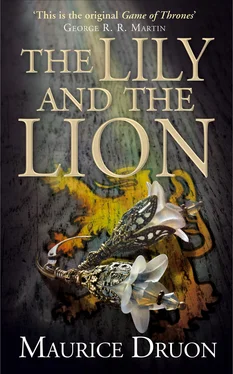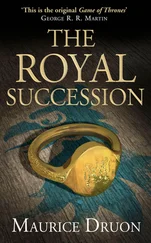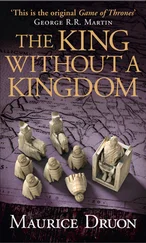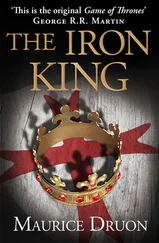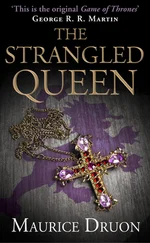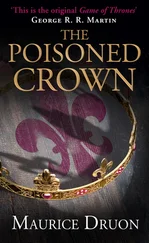1 ...6 7 8 10 11 12 ...19 PRINCES OF THAT TIME always had to have a dwarf. Poor people almost considered it a piece of good fortune to bring one into the world; they were sure of being able to sell him to some great lord, if not to the king himself.
A dwarf was generally looked on as ranking in the order of creation somewhere between a man and a domestic animal; he was animal because you could put a collar on him, rig him out in grotesque clothes like a performing dog, and kick his backside with impunity; on the other hand, he was human in so far as he could talk and submitted voluntarily to his degrading role for food and pay. He had to clown to order, skip, cry and play the fool like a child, even when his hair had turned white with advancing years. His lack of inches was proportionate to his master’s greatness. He was bequeathed like any other piece of property. He was the symbol of the ‘subject’, of nature’s subordinates, expressly created, so it seemed, to be a living witness to the fact that the human race was composed of different species, of which some had absolute power over the rest.
Abasement nevertheless brought certain advantages, for the smallest, weakest and most deformed in the community were among the best-fed and the best-clothed. Moreover, the dwarf was permitted, indeed commanded, to say things to the masters of the superior race that would not have been tolerated from anyone else.
The mockery and even the insults that every man, however devoted he may be, occasionally addresses to his superior in his thoughts were vented, as it were by delegation, in the traditional and often singularly obscene familiarities of the dwarf.
There are two kinds of dwarfs: the long-nosed, sad-faced hunchback, and the chubby, snub-nosed dwarf with the body of a giant supported on tiny, rickety legs. Philippe of Valois’ dwarf, Jean the Fool, was of the second kind. His head barely reached to the height of a table. He wore bells on his cap, and silk robes embroidered with a variety of strange little animals.
One day he came skipping and laughing to Philippe and said: ‘Do you know what the people call you, Sire?’ They call you “the Makeshift King”.’
For on Good Friday, April 1st, 1328, Madame Jeanne of Evreux, Charles IV’s widow, had been brought to bed. Rarely in history had the sex of a newborn child created such excitement. When it was known to be a girl, everyone recognized it as a sign of God’s will, and there was great relief.
The peers had no need to reconsider the choice they had made at Candlemas; they assembled at once and unanimously, except for the representative of England who objected on principle, confirmed Philippe in his right to the crown.
The people also heaved a sigh of relief. The curse of the Grand Master Jacques de Molay seemed exhausted at last. The Capet line, at any rate in its senior branch, was now extinct. During the last three hundred and forty-one years it had given France fourteen successive kings, though the last four had reigned for no more than fifteen years between them. In any family whether rich or poor, the absence of male heirs is considered, if not a disaster, at least a sign of inferiority, In the case of the royal house, the inability of Philip the Fair’s sons to produce male descendants was looked on as a punishment. But now there was going to be a change.
Sudden fevers seize on peoples, and their cause must be sought in the movements of the planets since no other explanation can be found for them. How else account for such waves of hysterical cruelty as the crusade of the pastoureaux or the massacre of the lepers? How account for the tide of delirious joy that accompanied the accession of Philippe of Valois?
The new King was tall and endowed with the majestic physique so essential to the founder of a dynasty. His elder child was a son, already nine years old and seemingly robust; he had also a daughter, and it was known (Courts make no secret of these things) that he honoured his tall, lame wife almost every night with an enthusiasm the years had in no way abated.
He had a loud and resonant voice, unlike his cousins, Louis the Hutin, and Charles IV, who had stuttered; nor was he inclined to silence as had been Philip the Fair and Philippe V. There was no one who could oppose him, no one who could be put up against him. Amid the general rejoicing, who in France was going to listen to a few lawyers paid by England to draw up objections, which they did without much conviction?
Philippe VI ascended the throne with the consent of all.
And yet he was King only by a lucky chance; he was a nephew and a cousin of kings, but there were many such; he was simply a man who had been luckier than his relations. He was not a king born of a king to be king; he was not a king designated by God and received as such, but a ‘makeshift’ king, who had been made when one was needed.
Yet the popular nickname in no way detracted from the loyalty and rejoicing; it was simply one of those ironical phrases the populace so often uses to mask its emotions and make itself feel that it is on close and familiar terms with power. When Jean the Fool told Philippe about it, he received a kick that sent him flying across the flagstones. He had, nevertheless, uttered the word that was the key to his master’s destiny.
For Philippe of Valois, like every parvenu , was determined to show that he was worthy, by his own innate distinction, of the elevated position to which he had attained, and his behaviour therefore tended to an exaggeration of all that might be expected of a king.
Since the King exercised sovereign powers of justice, he sent the treasurer of the last reign to the gallows within three weeks of his accession. Pierre Rémy had been accused of embezzlement on a large scale. A Minister of Finance suspended from the gibbet was invariably popular with the crowd. France believed she had a just king.
By both duty and office the Prince was defender of the Faith. Philippe issued an edict increasing the penalties for blasphemy and enhancing the powers of the Inquisition. As a result, the higher and lower clergy, the minor nobility and the parish bigots were all reassured: they had a pious king.
A sovereign owed it to himself to recompense services rendered; and a great many services had been rendered Philippe to assure his election. On the other hand, the King must not make enemies of the officials who had been attentive to the public interest under his predecessors. As a result, nearly every dignitary or royal officer was retained in his position, while new posts were created or those already existing duplicated to find places for the supporters of the new reign. Every application put forward by the great electors was granted. Moreover, the Valois household, which was itself of royal proportions, was superimposed on that of the old dynasty; and there was a great distribution of profitable offices. They had a generous king.
A king was also in duty bound to bring his subjects prosperity. Philippe VI hastened to reduce and indeed in some cases to suppress altogether the taxes Philippe IV and Philippe V had imposed on trade, public markets and foreign business, taxes which it was said hindered enterprise and commerce.
And what could make a king more popular than to stop the plaguing by tax-gatherers? The Lombards, who had lent his father so much money and to whom he himself still owed enormous sums, blessed him. It occurred to no one that the fiscal policy of the previous reigns had produced long-term effects and that, if France was rich, if the standard of living was higher than anywhere else in the world, if the people wore good sound cloth and often fur and if there were baths and sweating-rooms even in hamlets, all these things were due to the previous Philippes, who had established order in the realm, the unification of the currency and full employment.
Читать дальше
